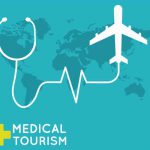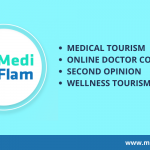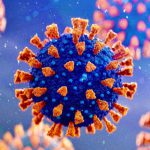The heart is one of the most important organs, pumping blood to all the organs and to itself. What is cardiovascular disease? Cardiovascular diseases are a group of diseases that affect the heart and the blood vessels supplying blood to them. Ischemic heart disease is the world’s deadliest killer, responsible for 16% of the deaths worldwide. The world was already reeling under the pressure of heart diseases, and then came the biggest blow, COVID-19. Coronavirus shook the core of mankind, taking a toll on human lives. Now how does COVID-19 increase the risk of cardiovascular disease? Clinical studies have confirmed that COVID-19 infection exacerbates the heart disease already present in inpatient Patients who were already suffering from cardiovascular diseases had fatal outcomes when they contracted coronavirus.
Another serious concern is drug-disease interactions affecting patients with COVID-19 who are having comorbid cardiovascular diseases. To add to these complications is the need for maintaining social distancing and avoiding COVID hospitals. Advancement in technology has served as a boon in such trying times. Teleconsultation platforms have helped many patients to access quality healthcare from the comfort of their homes. It has become very easy to solve cardiovascular problems by consulting top cardiologists online instead of visiting cardiovascular health clinics.
What is cardiovascular disease?
Now when we say cardiovascular disease, what do we mean by that? Cardiovascular disease definition means any disease that affects the heart or blood vessels supplying blood to the heart. These are usually deadly diseases as the heart is the organ responsible for maintaining blood supply to all the vital organs of the body which includes itself. The heart functions as a mechanical pump that beats constantly. The stimulus required for this beating is intrinsic, which is produced within the heart by a specialized group of cells called pacemaker cells. These cells make up 1% of the total number of cells present in the heart. The rest 99% are contractile cells that are responsible for the beating of the heart. The cardiovascular system anatomy comprises the blood, the heart, and the blood vessels and hemodynamics. The heart contains 2 auricles and 2 ventricles from where blood flows through different valves. The examples of the most common cardiovascular diseases fall under the following categories:
- ischemic heart disease (caused due to decreased blood flow to the heart muscle)
- arrhythmias (abnormal conduction in the heart)
- valve abnormalities
Here we are going to talk about the common examples of cardiovascular diseases as per the list of cardiovascular diseases mentioned below.
- abnormal heart rhythms also called arrhythmias
- aorta disease and Marfan syndrome
- congenital heart diseases
- coronary artery disease
- deep vein thrombosis and pulmonary embolism
- heart attack
- heart failure
- cardiomyopathy (heart muscle disease)
- valvular diseases
- peripheral vascular disease
- rheumatic heart disease
- stroke
- vascular disease (diseases related to blood vessels)
What are the causes of cardiovascular diseases?
Aging is one of the most common reasons for the development of cardiovascular diseases. Other major reasons for different types of heart problems are:
- congenital defects (those present at birth),
- genetic disorders,
- deposition of cholesterol in the arteries, a condition called atherosclerosis (this causes narrowing of the arteries and hence decreased blood flow to the heart muscle),
- high blood pressure
- chronic diabetes
- obesity
- excessive alcohol or caffeine intake
- stress
- valvular heart disease
Also, a sedentary lifestyle and increased stress in modern urban life have contributed to the development of a lot of lifestyle disorders that directly or indirectly lead to the development of cardiovascular diseases.
Treatment of cardiovascular disease:
Some of the cardiovascular diseases can be managed by taking drugs while some may require surgical intervention. This can be assessed by performing diagnostic tests like:
- ECG (electrocardiogram)
- Echocardiography
- Treadmill stress test
- Holter monitoring
- Angiogram (this reveals the blocks present)
Many classes of drugs are used for the treatment of cardiovascular diseases. Cardiovascular drugs classification is as below:
- Organic nitrates that include drugs like nitroglycerin, isosorbide dinitrate, and isosorbide mononitrate
- Calcium channel blockers which include drugs like verapamil, diltiazem, and amlodipine
- Beta-blockers that include drugs like atenolol, bisoprolol, and nebivolol
- Antiplatelet agents (aspirin is the most common)
- Antithrombotic agents
- Anti-integrin agents
- Alpha-blockers
- Combined alpha and beta-blockers
- Inhibitors of the renin-angiotensin system
- Vasodilators
- Antiarrhythmic drugs like digoxin, adenosine, amiodarone, disopyramide, dofetilide, esmolol, procainamide, vernakalant
Surgical intervention is used when drugs fail to manage the disease. The usual surgical options used are:
- Balloon angioplasty
- Angioplasty and stent placement
- Cardiac bypass
- Valve replacement
- Placing pacemaker to generate electrical activity
How does COVID-19 increase the risk of heart disease?
COVID-19 has been shown to cause myocardial injury even in those people who have no cardiovascular history of the disease. It has also been shown to cause venous thromboembolism, rhythm defects in the heart causing cardiac arrhythmias, and acute coronary syndrome. Also as it causes infection in the lungs resulting in lower oxygen saturation levels, it creates a load on the heart to function properly, ultimately leading to numerous pathologies. Improving heart health is of prime importance especially in COVID situations. Thanks to the development in IT and affordable internet, it is now possible to talk to a cardiologist online for free.
Relation Between cardiovascular system and COVID-19
The relation between the cardiovascular system and COVID-19 has been confirmed by clinical studies. Coronavirus can develop cardiac problems in previously healthy individuals. For those with pre-existing heart problems, the condition can be greatly exacerbated by COVID-19 infection. Infection in the lungs can put extra pressure on the heart. The burden of cardiovascular diseases was already very high and the cardiovascular impact of COVID-19 is significant.
Cardiovascular Mechanism and SARS-CoV-2:
The various mechanisms through which SARS-CoV-2 affects the heart, as mentioned earlier, are varied and almost affect all the aspects of heart functioning. Both the contractile as well as the pacemaker cells of the heart are affected by a coronavirus. Thus, abnormal contraction and disrupted rhythmic activity can be caused by coronavirus even in normal healthy individuals.
How does COVID-19 affect the cardiovascular system?
The cardiovascular impact of COVID-19 is quite significant. The mechanisms by which the virus leads to the development of cardiovascular diseases are varied and include:
- myocardial injury (the heart muscle is referred to as myocardium)
- arrhythmia (the abnormal electrical rhythm of the heart)
- acute coronary syndrome
- venous thromboembolism
Heart attack: The abnormal rhythmic activity and contraction of the heart due to COVID-19 infection can sometimes lead to a heart attack. Do you know what does a mini heart attack feels like? It may also be possible that a person has a transient heart attack also called a mini heart attack. The scientific reason for this to occur is the partial blockage of the artery supplying blood to the heart and is also known as non-ST elevation myocardial infarction (NSTEMI). The symptoms, in this case, do not last long and the heart may suffer only minimal damage.
Heart failure: Different heart failure examples can be precipitated in vulnerable individuals affected by COVID-19. These include:
- Left-sided heart failure where the fluid may back-up in the lungs causing shortness of breath
- Right-sided heart failure where the fluid may back up in the abdomen, legs, and feet, causing significant swelling called edema
- Systolic heart failure where the left ventricle cannot pump effectively and hence indicate the heart-pumping problem
- Diastolic heart failure (also known as heart failure with preserved ejection fraction) where the left ventricle cannot relax or fill fully and hence indicating a feeling problem.
Abnormal heart rhythms: All of the above problems can lead to various problems in the heart which include disturbed heart rhythms leading to serious arrhythmias, irregular heartbeat leading to disruptions in the pumping activity of the heart, and severe breathing problems because of fluid build-up in the lungs and elsewhere.
Long-term heart-related issue: The effects of COVID-19 are long-lasting and hence it is not sufficient to just get cured of the disease. It is very necessary to remain proactive and look for any symptoms that do not appear normal. One can always book an online consultation with top cardiologists online and get help to monitor any abnormality or problems related to the heart. At the same time, these doctors can help to prevent heart diseases from occurring, explaining the dos and don’ts. The best part of online consultation is that one can access the best doctors spread across the country even from remote places, the only condition is a stable internet connection.
Prevention for cardiovascular disease
Best cardiologist online consultation can help you understand how to prevent cardiovascular diseases by adopting simple lifestyle modifications including changes in dietary habits and doing mild to moderate exercise. Restraining alcohol and smoking can help a lot in keeping good health and preventing cardiovascular and respiratory disorders. Improving cardiovascular health is the key to heart disease prevention of not, and also a host of other diseases.
MediFlam: Consult top cardiologist online
MediFlam is a wonderful online consultation platform having some of the best cardiologists of the country on board, each certified by an expert team. It aims at providing seamless integration and a hassle-free experience for both the doctor and the patient. The added facility of storing medical records safely helps the doctor to remain updated with the latest condition of the patient and thus providing a proper diagnosis. The patients can also store their medical and medication records on the platform even without consulting the doctor, thus acting as a safe storage place. This can be of great help in subsequent consultations if the need arises. The patients do not need to carry physical records and hence the chances of misdiagnosis are reduced to a great extent. The selected doctor can access the records, study the medical history and then consult the patient, thus providing a rich and gratifying experience in less time. Consult top cardiologists online and get resolved of all your queries.
The lockdown has made many things online, our medical consultations being one of them. It has been rightly said that Change is the only constant. Embracing the change is the need of the hour.












